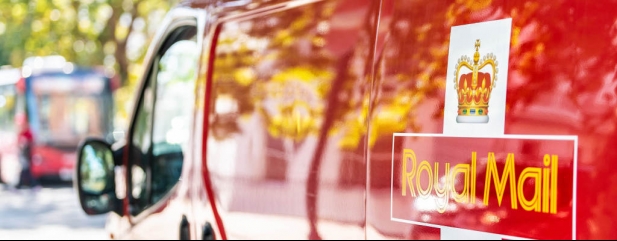Archived article
Please note that tax, investment, pension and ISA rules can change and the information and any views contained in this article may now be inaccurate.
Capex cuts matter to investors

The coronavirus pandemic has forced businesses around the world and across the industrial divide to pull emergency levers to conserve cash.
As most private investors will be acutely aware, a hefty toll has fallen on company dividends, with billions of pounds worth of planned payouts from UK stocks now taken off the table and out of investor’s pockets.
James Dow of Scottish American Investment Company (SAIN) estimates that UK dividend payments will be slashed by 62% this year, not so much a dent in investor’s income as a massive black hole. This compares, according to Dow, to a rough 20% decline globally during the financial crisis of a decade ago.
Yet the company cost cutting, cash savings emergency measures do not stop there, with capex, or capital expenditure, budgets widely reeled in. Analysis by Peel Hunt suggests that up to £23bn of capex has been axed by UK listed businesses in 2020.
‘Capex is one of the easiest cash items to defer or cancel,’ says Peel Hunt.
‘In the uncertain environment, we suspect most chief financial officers will cancel capex if possible in the short term rather than just deferring as there’s no guarantee of an acceptable return on investment (ROI) on growth capex.
This is not exclusive to the UK. According to the Ifo economic institute, roughly half of companies in Germany postponed investments in April and May as the coronavirus pandemic takes its toll. The plug being permanently pulled rose from 22% of investment projects in April, to 28% in May.
‘These are worrying figures for the long-term development of the economy, said Klaus Wohlrabe, Ifo’s head of surveys.
WHAT IS CAPITAL EXPENDITURE
That concern comes because of the potential toll reduced capex could exert on company performance. ‘The problem is that one company’s reduced capex results in a reduction in turnover for many other companies,’ point out Peel Hunt analysts.
Capex largely falls into one of two camps; it is either funds used by a company to keep operations running smoothly, or it is spending designed to improve the future prospects of a business. This is true for tangible assets that you can see and touch, like, property, plant, tools and equipment and office furniture, and for intangibles, such as software licences.
For example, Royal Mail (RMG) will periodically have to update its vehicle fleet, trading in exiting van and lorries with newer models before becoming unreliable. Similarly, Barclays (BARC) might licence particular accounting and payroll software, and will have to buy new licences with maintenance and servicing agreements, perhaps every three years.
MOST SUBSTANTIAL CAPEX CUTS
It comes as no surprise that the deepest cuts come in sectors shaken hardest by Covid-19 and its fallout, industries such as retail, travel, transport and oil.
‘In April oil faced a perfect storm of a circa 30% reduction in il demand due to Covid-19, and a flood of supply due to OPEC’s initial failure to agree a new deal for supply cuts,’ said Peel Hunt.
This saw Brent crude prices collapse by about 50% to less than $30 a barrel and ‘forced oil companies to make major cuts to capex.’
BP (BP.) and Royal Dutch Shell (RDSB) will slash £9bn of capex in 2020, 25% and 20% of their previous budgets respectively, while names familiar to many private investors, such as Tullow Oil (TLW), Enquest (ENQ) and Gulf Keystone (GKP) have cut capex by between 43% to 69%.
Another £5bn of capex investment has been slashed across the retail, travel and transport sectors, with grounded plane fleets seeing BA-owner International Airlines Group (IAG), Ryanair (RYA), EasyJet (EZJ) and Wizz Air (WIZZ) responsible for more than half of that (2.65bn).
There are also parts of the stock market that have largely keep capex plans in place. Negligible changes to 2020 investment in financial services, mining and healthcare sectors stand out from the Peel Hunt study, while UK technology companies are forecast to increase capex investment considerably on 2019, based on available data.
Peel Hunt’s latest forecasts for a universe of 23 UK tech companies will spend more than £820m on capex this year, up from £503.4m in 2019. That will jump again in 2021 to more than £1bn.
This includes a diverse selection of tech companies listed in the UK, including soon to be new FTSE 100 cyber security firm Avast (AVST), software reseller Softcat (SCT) and Ocado (OCDO), plus a number of AIM-quoted companies drawn from financial software, technology hardware, computer gaming and other fields of expertise.
Important information:
These articles are provided by Shares magazine which is published by AJ Bell Media, a part of AJ Bell. Shares is not written by AJ Bell.
Shares is provided for your general information and use and is not a personal recommendation to invest. It is not intended to be relied upon by you in making or not making any investment decisions. The investments referred to in these articles will not be suitable for all investors. If in doubt please seek appropriate independent financial advice.
Investors acting on the information in these articles do so at their own risk and AJ Bell Media and its staff do not accept liability for losses suffered by investors as a result of their investment decisions.

 magazine
magazine












